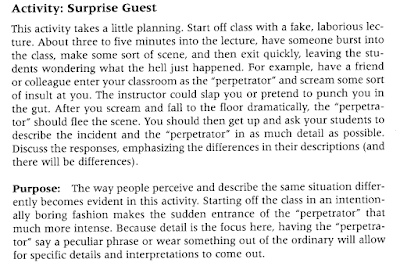Pawn to Origin
Laurie L Bower discussed the motivational style of teaching in the chapter, “In our own voice”. As a teacher how we can motivate our students to enjoy their writing classroom and motivate them intrinsically are the main points of discussion. Now one may ask, why do we need to motivate when students are already in the classroom, submitting assignments regularly and getting out with pass marks? So, here you go with the answer- Because a large number of students enrolled in the composition class because they are compelled to do so. They join the class with a negative attitude towards writing. Though writing is all about practicing, they think that successful writers are born with the blessings of writing power. So, they do the writing class reluctantly. They are completely unaware of the joy of writing. However, encouraging a positive attitude in students may rediscover the joy in writing among them. Man has an innate desire to learn (Aristotle) which gives the hope that we can bring ch...

